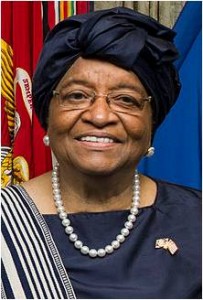“Queens of Africa” is a line of black dolls inspired by the three largest tribes in Nigeria. They wear the wonderful traditional dresses of the three queens. And I love the song in the promotional video portraying the three queens—one of them is the Queen of Peace.

Source: Wikipedia
The answer is 13 out of 35 (37%) of the armed conflicts around the world are in Africa. Social tensions need to be considered as well (37 in Africa out of 95 in total, or 39%). Bear in mind that these figures include all of Africa. They are taken from the latest Barometer on Conflicts and Peace building that the Escola de Cultura de Pau (The School for a Culture of Peace) at the Universitat Autònoma de Barcelona publishes quarterly.
Out of the 13 armed conflicts, eight are taking place in sub-Saharan Africa and none is in Southern Africa (the areas on which I focus). At a glance:
| Country | Intensity* | Trend | Beginning |
| CAR | 3 | = | 2006 |
| Central Africa** | 1 | = | 1986 |
| DRC (East) | 3 | ↓ | 1998 |
| DRC (East – ADF) | 1 | ↓ | n.a. |
| Ethiopia | 1 | = | 2007 |
| Mali | 2 | ↓ | 2012 |
| Nigeria | 3 | ↑ | 2011 |
| Somalia | 3 | ↑ | 1988 |
* Range: 1 = low intensity to 3 = high intensity
** This conflict extends across multiple countries in Central Africa
Peaceful countries (22 out of 45) with neither armed conflict nor social tensions are:
- in Western Africa: Benin, Cape Verde, Gambia, Ghana, Mauritania, Niger, Saint Helena, Sierra Leone, and Togo;
- in Central Africa: Cameroon, Congo (Brazzaville), Gabon, and Sao Tome and Principe;
- in Eastern Africa: Mauritius, Mayotte, Reunion, Seychelles, Tanzania, and Zambia; and
- in Southern Africa: Botswana, Namibia, and South Africa.
We need to make peace happen. “Make it happen” is the theme of this year’s International Women’s Day (celebrated on March 8). With chapters in DRC and Nigeria, Women’s International League for Peace & Freedom (WILFP) is an association dedicated to making peace happen. During its 100-year existence, WILFP has “brought together women from around the world who are united in working for peace by non-violent means and promoting political, economic and social justice for all.” (See the WILFP Nigeria report and the DRC Chapter)
African women are a powerful driving force. Just take Ellen Johnson Sirleaf as an example. President of Liberia, she was awarded the Nobel Peace Prize in 2011, jointly with Leymah Gbowee of Liberia and Tawakel Karman of Yemen. Why? “Their non-violent struggle for the safety of women and for women’s rights to full participation in peace-building work.”
What if women were allowed to participate more actively in peace-building processes? As the “Queens of Africa’s” song says: “Water is soft but it can break a rock.”


very few countries with women presidents ever go to war (civil or with other countries) , we need more womens leadership in africa
Indeed, Tsepo. And it’s a pitty that there aren’t more women in leadership positions at all levels. There’s a popular song in my country that says something like “countries and nations would be like oil pools if women were in command.”